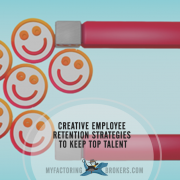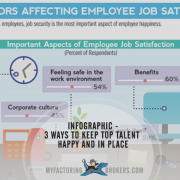You know things are getting bad when Gallup identifies the worst managers as ‘bad bosses from hell.’ Given that a worker’s immediate supervisor usually determines whether they go, stay or become engaged, clearing the ranks of bad bosses is a must.
Are Bad Bosses to Blame When the Best Employees Leave?
An employee’s immediate supervisor has the greatest impact on employee engagement and satisfaction, for more than one reason. Not only do they dictate the working conditions, responsibilities and rewards to a great extent, they also set the tone and influence the interpersonal dynamics of their group.
Bad bosses are employee engagement killers. The degree to which the experts believe that a worker’s supervisor influences whether they are engaged and happy, merely satisfied, or ready to bolt at the first opportunity is clear, as set out in the introductory words of Gallup’s 2013 State of the American Workplace report. Gallup CEO Jim Clifton begins his remarks to business leaders by saying:
“Here’s something they’ll probably never teach you in business school: The single biggest decision you make in your job – bigger than all the rest – is who you name manager. When you name the wrong person manager, nothing fixes that bad decision. Not compensation, not benefits – nothing.”
The numbers don’t lie. Gallup has spent decades researching and reporting on the directly correlation between organizations with high levels of employee engagement (and related benefits of increased productivity and profitability) and great management. When comparing the top 25 percent and bottom 25 percent of teams, Gallup found that the top teams have:
- 50% fewer accidents
- 41% fewer quality defects
- 25% less in healthcare costs
Furthermore, the bottom 25 percent are estimated to be draining up to $550 billion annually from the bottom line of U.S. businesses. By contrast, the top 25 percent come up with most of the innovative ideas, attract most of the new customers acquired and have the most entrepreneurial energy.
Help Wanted: A Boss We Don’t Hate
When writing a job posting or job description, often both desired and required qualifications are described in order to attract the right applicants. Desired skills and abilities can serve to put some qualified applicants ahead of others; however, to be considered at all, a candidate usually needs to have met the requirements of the position.
Whether you are looking to boost your own resume, position yourself for advancement, or you are in the position of hiring someone who will be responsible to manage others in the course of their work (or you just want to improve the quality of your organization’s hiring decisions), you need to identify must-have’s, and some may not be as obvious as others. You should think in terms not only of quantifiable skills and experience (such as education level or years on the job) but also in terms of intangible qualities that are usually lacking in bad bosses, such as the four must-have traits common to the type of bosses that employees don’t hate, below.
No More Bad Bosses: 4 Must-Have Traits of Bosses Employees Don’t Hate
Supportive
Being supportive is much more than being available and positive, although that is a great place to start. Supportive managers have a desire to understand the strengths, weaknesses, on and off the job challenges of their direct reports and co-workers, and to accommodate them as much as is practical. What’s more, being supportive might translate differently to different employees, depending on their personality, intellect and emotions (actually, we guarantee that it will).
Specific
Good managers know where their team is at, where they want to go next, and have some idea of what it will take to get there; great ones share that information with their staff. Employees led by great managers don’t get surprised when their performance review rolls around, because they receive feedback on a regular basis that includes minor course corrections, so that major ones are rarely, if ever, called for.
Constantly Investing
Whether investing in employee training, development, rewards, or equipment that enhances the work experience or a worker’s ability to be more productive, great managers seem to have an innate proclivity for saying ‘yes.’ Investing today in order to reap organizational benefits in the future may seem like an obvious choice, yet many business leaders seem to be focused on draining organizational resources ndash; including their employees – to the point of resource exhaustion.
Many managers seem to believe that they’re paying for engagement; however, a paycheck is recompense for hours worked, not attitude or engagement. Investing in talent acquisition and development is the payment required, many times for employee buy in and engagement.
Inspirational
It might go without saying that great managers lead by example, but we’re going to say it anyway, because it bears repeating. You cannot expect team engagement where its manager is not engaged, bought in and a believer in the core values and mission of the organization. Great managers have the ability to cast a vision and they themselves embody the values they want to see in their team.











Trackbacks & Pingbacks
[…] the heart of safety lies the question of trust, and trust takes time and precedent. Employees must trust their manager and company executives if they are going to venture out of their comfort zones and take leadership […]
[…] every employee in your organization deserves to have qualified, competent, quality leadership. When poor leadership is knowingly kept in place, the organization is held back in some way. Making decisions that are in […]
Leave a Reply
Want to join the discussion?Feel free to contribute!